- Words Ben Broyd
- Photography Lily West
- Fashion Marianthi Hatzikidi
- Fashion Assistant Malachi Breeze
- Fashion Assistant Beatriz Jardim
- Fashion Assistant Sofia Papanikolaou
- Production Studio Notion
- Studio Dot Athena
With his latest EP Forward, p-rallel gifted us feel-good energy and a mashup of collaborations made for the club. Still not touching the ground, he takes a minute to reflect on his journey so far before stepping into his next iteration as an artist.
Some artists just have that natural aura about them – one where you can tell that through the combination of their humility and desire, they are destined for great things. p-rallel perfectly aligns himself with this category.
A member of the prestigious Elevation/Meditation collective, p-rallel has soundtracked live shows for the likes of Slowthai and Lava La Rue, and operated the boards for Rejjie Snow and Playboi Carti. But whilst biding his time to manifest his own musical visions, there was never any doubt in his mind – or those around him – about how far he could go.
Following the success of his second EP, Soundboy, in the summer of 2020, p-rallel showcased his musical versatility with his latest project, Forward, this spring. Aptly named, the EP is an honest expression of his journey and how he’s been influenced by the club scene, all about keeping things moving with the excitement of adventure. Designed to pick up the vibes, with the sun beginning to shine bright, p-rallel’s Forward will undoubtedly be playing on repeat through those long-awaited, feel good, never-ending summer nights.
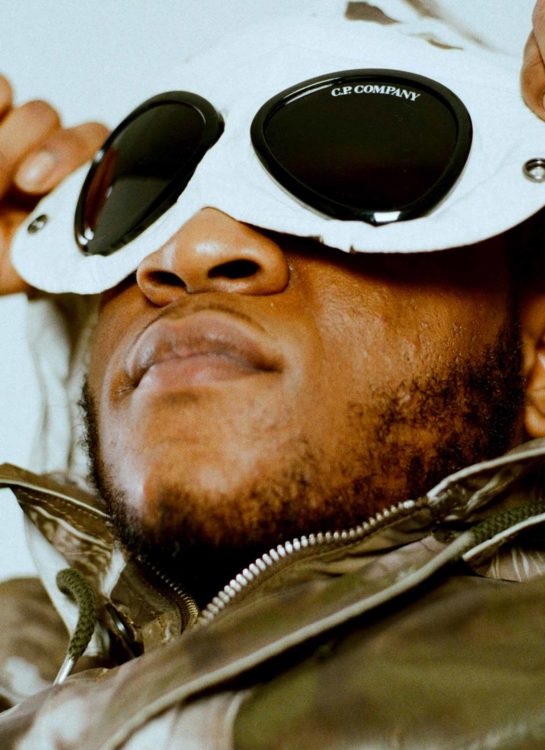
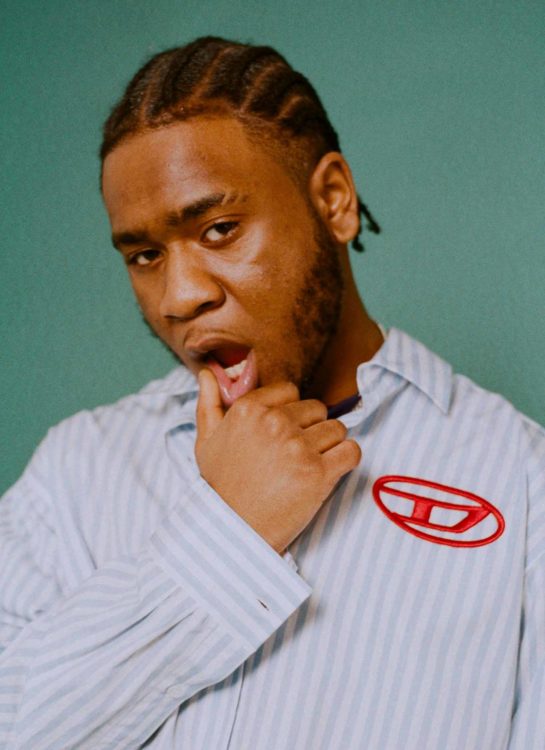
I read that your parents met at a party where your mum was hosting and your dad was DJing. How influential were your parents in forming your musical style?
Very, but subconsciously. Just growing up and being around that life, having that energy around me, I’ve subliminally done it myself and followed in their footsteps. My dad was a multi-genre DJ, he played everything, so there was nothing that wasn’t being played in the house.
And you grew up in west London – how did that shape you as an artist?
A lot. The people that I worked with from the start, most of us were London-based or south west-based. Building a studio in my bedroom to facilitate those artists, and for all of us to work together, played a big part of the story. West London is what made me.
Are there any other significant real-life experiences that have influenced your work?
I wouldn’t say so yet. I’m kind of just living in a film, so I’m taking that into perspective and I’m making music. This is not the everyday life that everybody else lives, so I’ve got to do more than I originally thought I would need to do. I want to inspire loads of kids, so it’s bigger than I originally thought when I started to make music in my bedroom. The more I live, the more the emotion and then the story gets bigger.

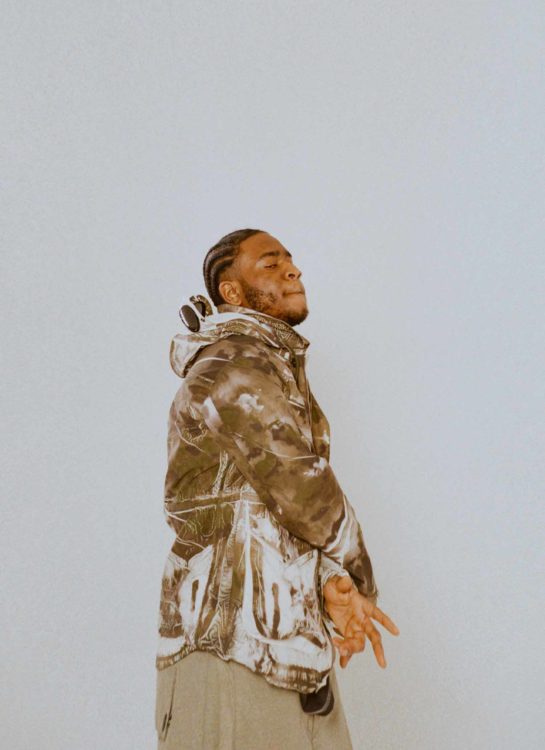
In what way do you want to inspire these kids?
Just to show that it’s possible. That anything you want to do is possible. Anyone can take what I do in any way they want to take it.
You started DJing at quite a young age, popping off at parties across London. Did it all happen very naturally?
Yeah. I was around Skepta’s crew at the start of my career, so when they were throwing parties they would put me on the lineup. That first party back in 2016, I think the lineup was me and Tiffany Calver. Because of that, people associated me with that crowd. I was always making music behind the scenes, but the DJing helped elevate my name. When everything kind of died down [through lockdown], it was the best way to drop Soundboy, and now I’m perceived as an artist.
You’ve soundtracked live shows for the likes of Slowthai and Lava La Rue, and operated the boards for Rejjie Snow and Playboi Carti. What was it like being on tour with other key players in the industry?
It assures me, and it prepares me for when it’s my go. It’s like seeing the world through their eyes and seeing everything that’s needed to put together a big show – the togetherness of having a team, building a team, and making sure that team is there for your every need, that you’re there for their every need. It taught me a lot, being on the road, but it was also very fun.

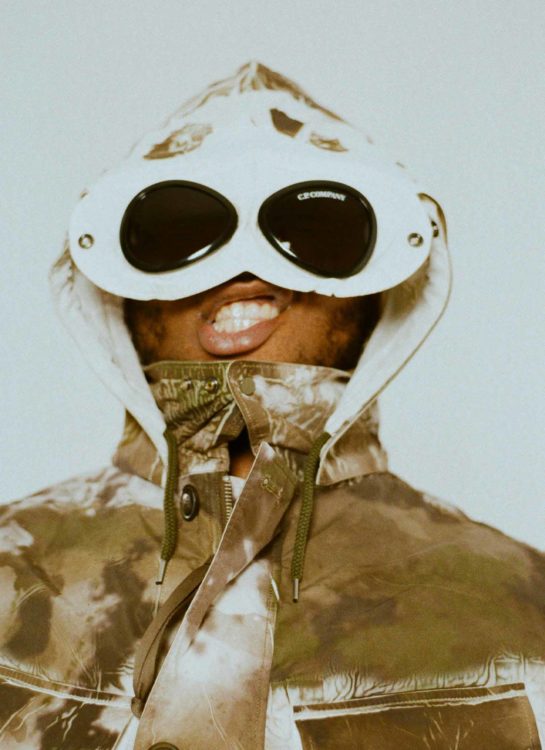
Did working alongside these artists help you establish the artist that you want to become yourself?
It did push my hunger to keep doing my thing and not coast being a DJ or a tour DJ. That’s not me, that was just a stepping stone.
How has your artistry evolved with your new EP, Forward?
It’s very different to Soundboy, I can tell you that. It’s a lot more upbeat, more for the club. It’s a different energy. I’ve always wanted to make more upbeat house music, but it didn’t make sense for me to release it prior to now. That’s why I’ve called it Forward, because this is the next step in my path I’m going on – being able to touch this space of music, and then move on.
What kind of artist would you like yourself to develop into next?
There isn’t a reference in there in the world for me to pin it to.
That’s a good thing, surely?
One thing I’ve learned is that if you say you want to do one thing, you end up not doing it. Or you end up doing something way better than what you actually do, so I can’t really plan how my artistry is going to go.
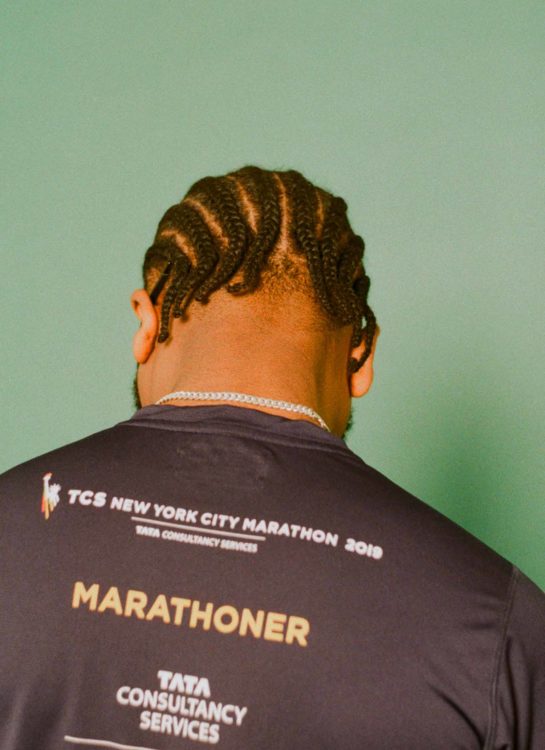
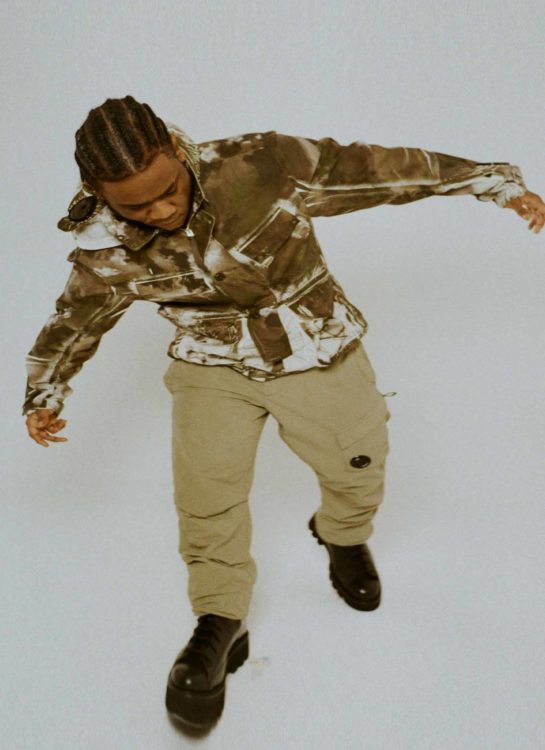
How do you see the music industry evolving throughout this process?
The more I’ve grown up, the less I care about the industry and the more I just care about the people. My whole thought process is that the more I care about people and the more I give to people, then there’s more of a chance the industry can craft to that way of thinking. I think the whole narrative needs to be you need to concentrate on being there for people and creating experiences for people, and then the industry will follow behind.
The term legacy that gets thrown around a lot, and it’s still early on in your career, but what does a legacy look like for you?
Someone that’s created a difference in the world. I was thinking about this the other day – the difference between Drake and Kanye. Drake’s numbers are way higher, but Kanye West has got more of a legacy because he’s left an imprint here on the world. I think the main focus is leaving things in your time that people can look back and be like, ‘He did this, and this created this effect on the world.’
Similar to Jamal [Edwards]?
Exactly like that. Leaving something there for people to be inspired by, that helps draw the industry or the culture in a specific way.

